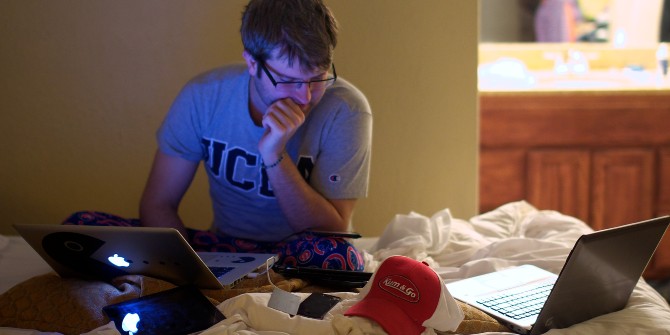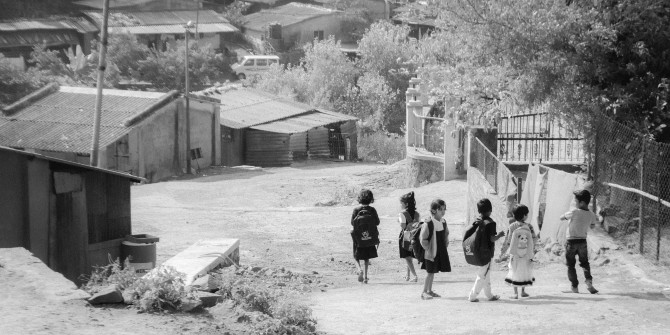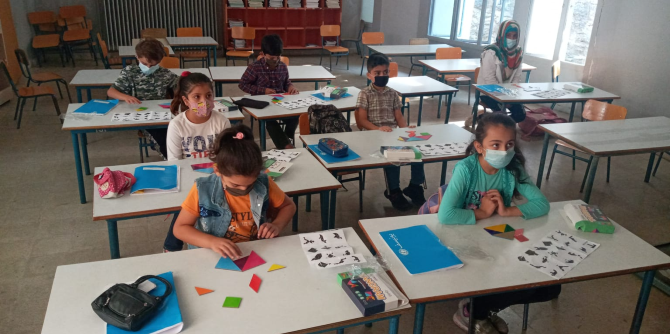Young people are paying a high price for the efforts to control COVID-19. But, argues Sid Mohasseb (University of Southern California), their experience of the pandemic puts them in a strong position to thrive in its aftermath – if older generations enable them to do so.
There is no denying that the pandemic has hit the youngest, or ‘Generation COVID’, hard, with disruption to their education, social lives and career planning. Generation C-ers (rather than previous generations who were defined by the year of their birth) will be known by their experiences, behaviour and outlook, after coming of age during the pandemic.
But when the dust settles, there is evidence that the conditions of the pandemic – like world wars, recessions and depressions in the past – will unleash ‘Generation C’s’ ambition, resilience and raw creative energy. Combined with new technologies like digital living and AI, this could create a wave of innovation. Our job now is to create the policies (supported by governments, parents and wider society) that ‘Generation C’ needs, so they can rewrite the current script of business and unleash their talents post-COVID.

This may seem counterintuitive. At times of crisis, it is difficult to see the dividends that may be paid afterwards. The Chinese character for ‘crisis’ is (similar to a German compound word) a combination of the characters for ‘danger’ and ‘opportunity’. Although younger generations are far less likely to suffer physically from COVID, the social and economic fallout has hit them the hardest – and they know it. The Financial Times interviewed 800 Generation C-ers, and found that the pandemic has created growing resentment towards older generations, and perhaps even eroded trust in the norms and values within which they were expected to live.
The causes of this resentment and loss of trust are easy to see. Youth unemployment in the US reached a staggering 27.4% in April, and has not regained its pre-pandemic level. The mental health of adolescents and young adults is suffering. But just as they are disproportionately affected by the pandemic’s short-term economic cost, they will be in prime position to reap its long-term benefits. If history is any guide (and it usually is) Generation C will kickstart our economy. Crises create focus, stimulate leadership and increase the appetite for risk because the alternative doesn’t look good.
One of the biggest brands in the world, Disney, was built on the ruins of the post-war depression. Every indicator would have suggested that there was little chance an animation company could be successful then: a high level of risk, expensive production costs, scarce investment and low consumer spending is hardly the recipe for easy business growth.
But Disney embraced new tech and understood societal changes. By combining both sound and movement in their animations, Disney was able to create the most accurate representation of real life ever seen on the screens by the public. This was lapped up by a public for whom the television had just become affordable. That public was eager to enjoy the distraction and entertainment of Mickey Mouse cartoons, and Disney became a central ingredient of American identity. The company is still innovating, with the launch of Disney Plus last year.
More recently, AirBnB reminded us that recessions and crises breed creativity and new business models. Its founder Brian Chesky rented out an air mattress in his San Francisco living room in the year leading up to the global recession. His firm was valued at $100 billion at its IPO earlier this month. IBM, Microsoft and FedEx all started during recessions.
There are a number of reasons why I believe brands of this stature will be created in the coming years.
First, uncertainty. Working patterns and consumer attitudes have permanently shifted as a result of COVID, meaning a variety of needs have not yet been met by established business. It’s only those coming of age in this climate who can instinctively understand – and profit from – those needs. Millennials have been called ‘digital natives’; Generation C-ers will be ‘digital transformers’.
Second, knowledge and learning. Gen C-ers’ learning habits will leave them best suited to solve the unmet problems of the day. A Pearson study found that 60% of generation Z-ers, the age group between 14 and 23, prefer learning from YouTube than from books. This is likely to rise. And they will be focused on practical and activated learning, rather than theory and observation.
The shift of learning from analogue to digital, physical to virtual, has democratised education. Anyone, anywhere can learn just about anything, given they have the will to do so and access to the internet. It could be the biggest tool of social mobility ever seen. The desire to learn could become more important than family wealth or parental privilege.
Third, dissatisfaction with traditional employment routes. Generation C-ers are increasingly disillusioned with the traditional school-to-university-to-graduate job formula. They want a purpose in their employment, not just a pay cheque. And they have seen how precarious traditional employment can be, meaning that security – the main attraction of an office job versus entrepreneurship – is less of a pull than ever before. They have seen unemployment skyrocket through a crisis and they have experienced firsthand the value of being in control, not just on the payroll.
These three factors will create the environment for change, the speed and scale of which will be huge.
None of these long-term opportunities take away from the acute short-term pain of children and young people who have been deprived of their education, social lives and family support networks. This will have significant developmental and health consequences which must be addressed quickly so it does not define their life chances. That is the danger that comes with this opportunity.
Governments should not burden them with excessive public debt, but rather allow this groundswell of entrepreneurship potential to flow uninhibited. Education bodies should free up space on the curriculum by eliminating increasingly outdated subjects and give space to the fields of data science, machine-learning and artificial intelligence. Micro-education, where the most useful skills can be learnt rapidly, will be much more valuable than going to university for years.
And our whole narrative must also shift. Generation C-ers have had enough of elitism dressed up as (false) capitalism by large corporations. They want true entrepreneurship, innovation, and improvements in society to define their working lives. As C-ers fight what has been called a war against an invisible enemy – often to protect their elders – we must remind ourselves to see the opportunities beyond the danger.
This post represents the views of the author and not those of the COVID-19 blog, nor LSE.






Great article, we have all had enough of elitist crony capitalists. It’s time to revolt!